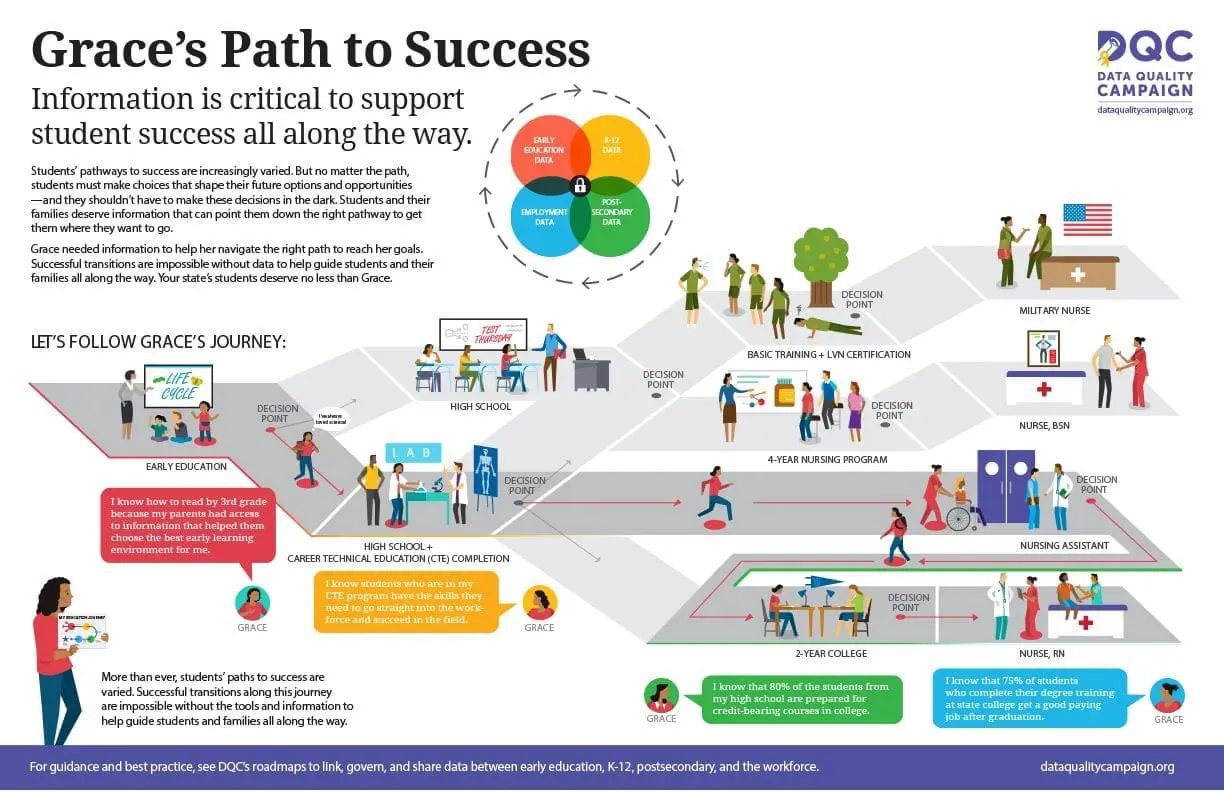When individuals have access to information about the pathways they can choose after high school and the outcomes of those pathways for students like them, they can make informed decisions for themselves and their families. That’s where credential transparency comes in. According to Credential Engine, there are nearly 750,000 unique credentials in the US—but too many potential students are left without the data they need to make decisions about which of those credentials are right for them. Credential transparency demands that credentials be easily accessible, understood, comparable, connected to other critical education and workforce data, and communicated so that they serve everyone.
Credential Engine, joined by nine national and membership organizations including the Data Quality Campaign, recently released a roadmap that details actions state policymakers can take to increase credential transparency. Throughout the roadmap, Credential Engine highlights where states are already putting in the work to connect credentials and make the process easier to navigate.
As always, we think it’s important to hold up state action meant to ensure that data is easy to find, use and understand. Following are some state activities from the roadmap that exemplify state action toward credential transparency:
- New Jersey is using credential information to build decisionmaking tools to help unemployed people navigate their way back through education and training and into the workplace. Having a tangible and explicit use case at the start helps underscore the value of the work and helps stakeholders understand the end goals.
- Indiana is building better early college, dual credit, pathway, and digital degree platforms across the state, and has communicated their use cases via communications materials, presentations, and internal state agency policies.
- Kentucky requires the Council on Postsecondary Education to annually compile data on in-demand jobs within the state and for each public postsecondary institution, and each campus of the Community and Technical College System, to compile data relating to student successes and costs, and requires the Council to develop a delivery method to ensure access to information by prospective students.
- Connecticut Governor Ned Lamont signed an executive order to establish a Governor’s Workforce council to strengthen and connect workforce and education systems and includes a call to “bring transparency to credentials” in the state.
- The Kansas Board of Regents collects data from each of its institutions at least annually and the state has established regular processes to evaluate additional data they can collect and publish.
Read the full state roadmap here.


